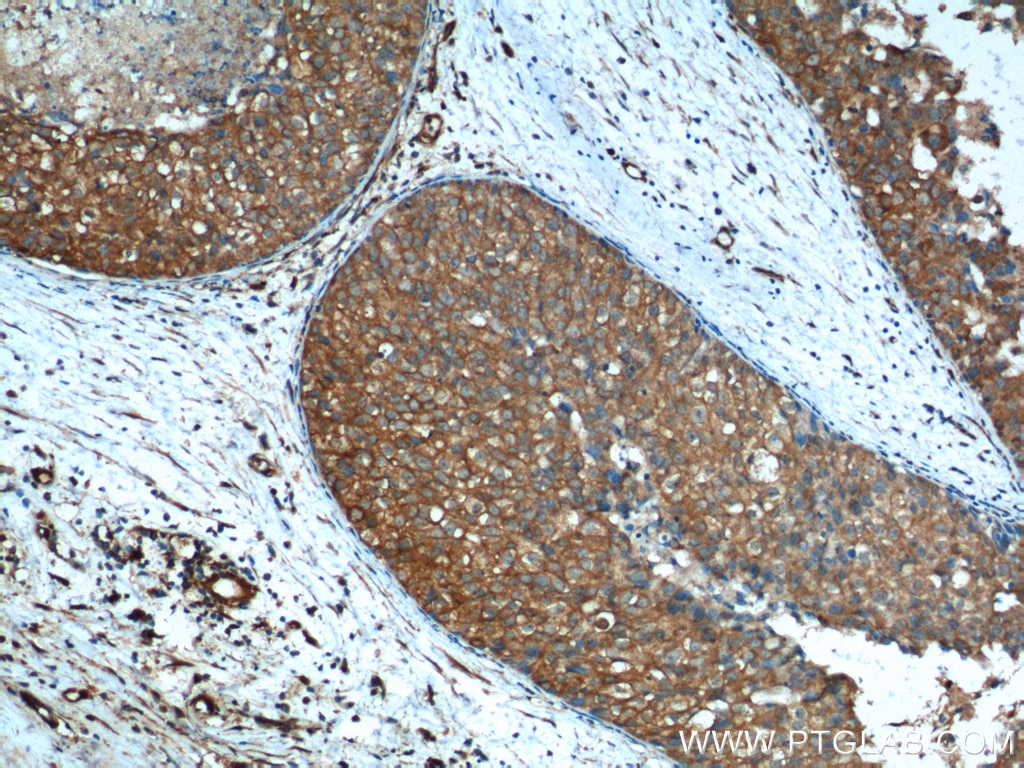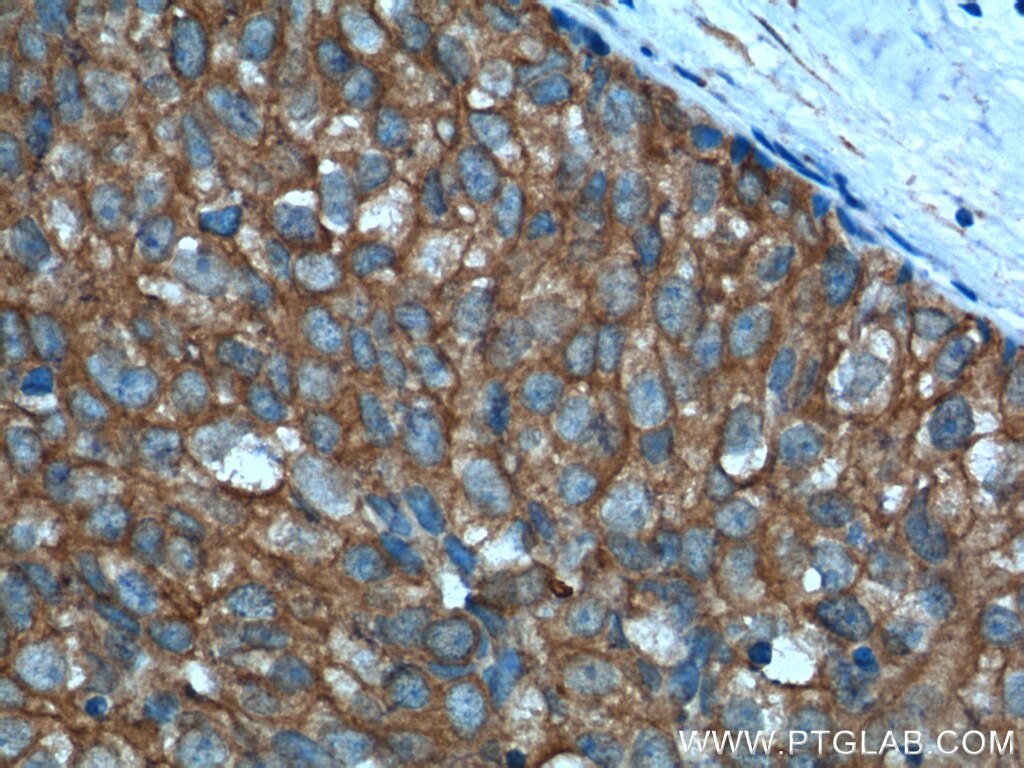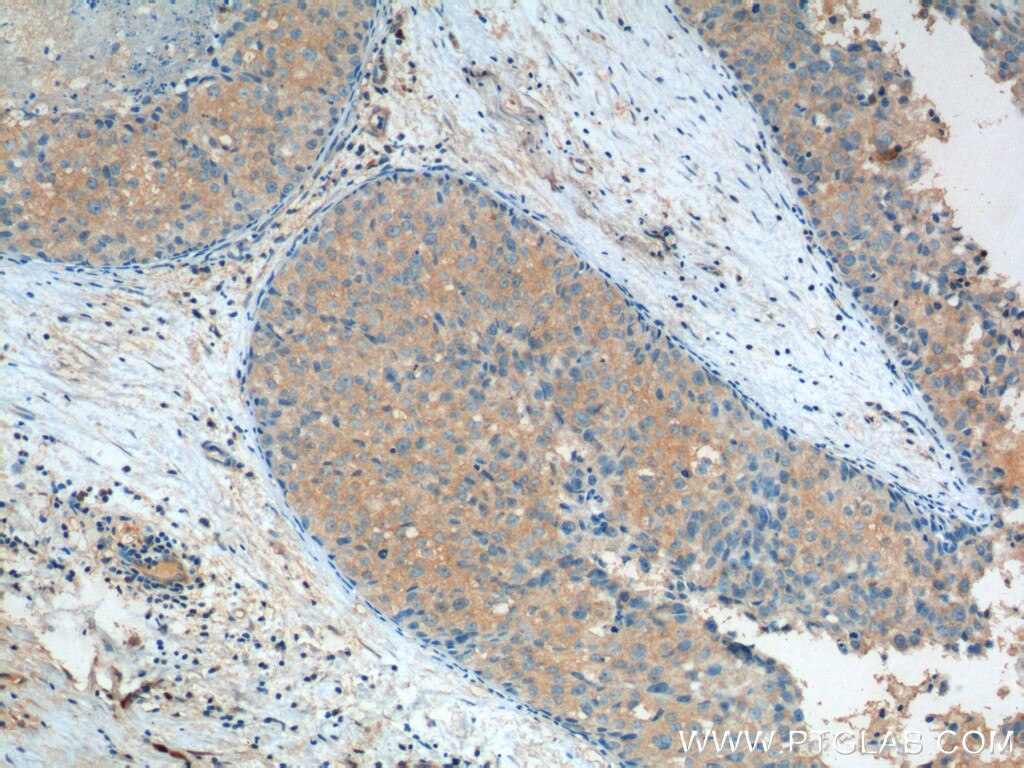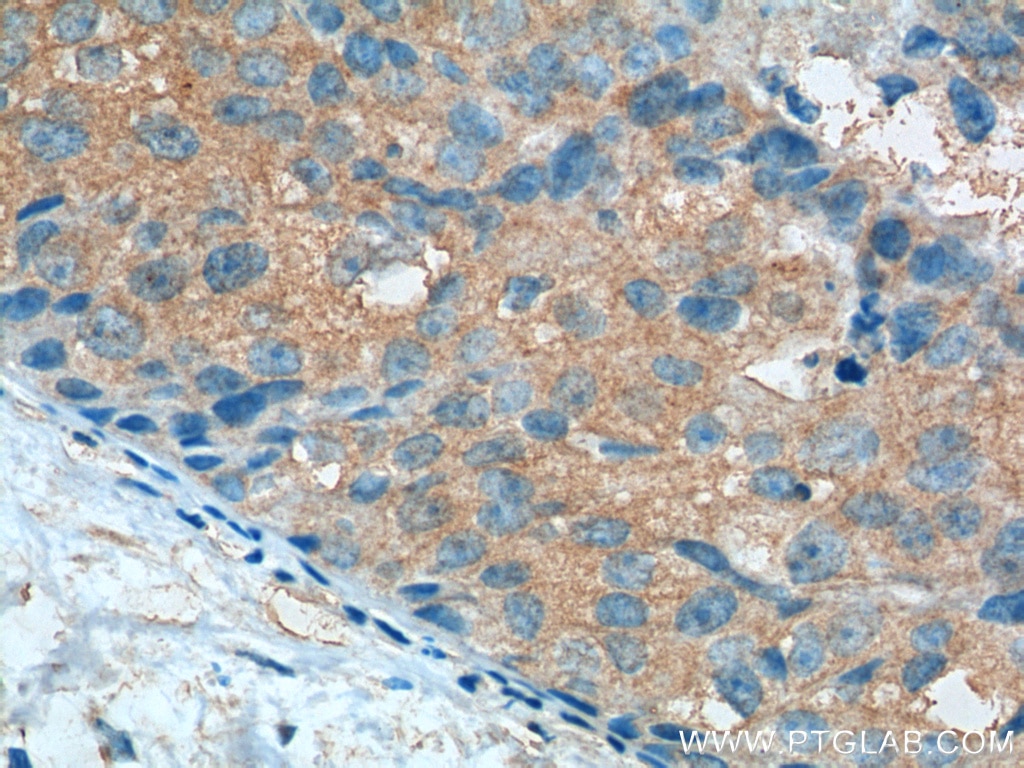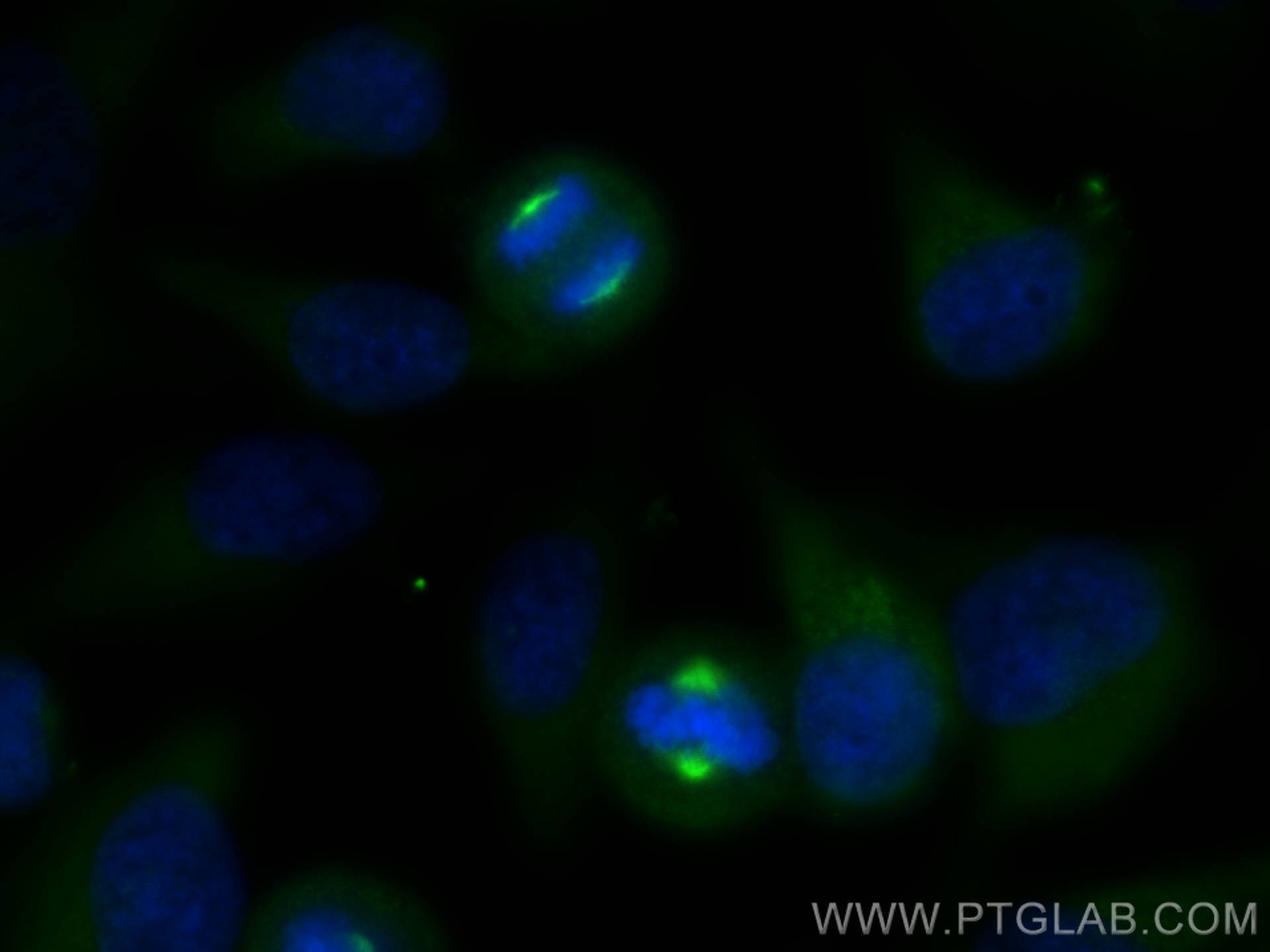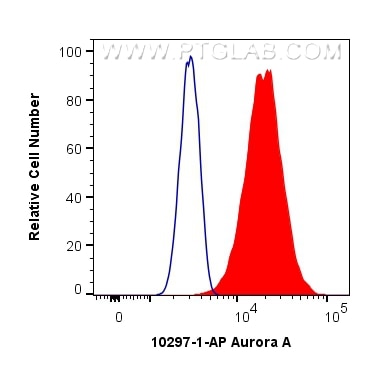Tested Applications
| Positive IHC detected in | human breast cancer tissue Note: suggested antigen retrieval with TE buffer pH 9.0; (*) Alternatively, antigen retrieval may be performed with citrate buffer pH 6.0 |
| Positive IF/ICC detected in | HeLa cells |
| Positive FC (Intra) detected in | HeLa cells |
Recommended dilution
| Application | Dilution |
|---|---|
| Immunohistochemistry (IHC) | IHC : 1:100-1:400 |
| Immunofluorescence (IF)/ICC | IF/ICC : 1:200-1:800 |
| Flow Cytometry (FC) (INTRA) | FC (INTRA) : 0.40 ug per 10^6 cells in a 100 µl suspension |
| It is recommended that this reagent should be titrated in each testing system to obtain optimal results. | |
| Sample-dependent, Check data in validation data gallery. | |
Published Applications
| KD/KO | See 2 publications below |
| IHC | See 3 publications below |
| IF | See 5 publications below |
Product Information
10297-1-AP targets AURKA in IHC, IF/ICC, FC (Intra), ELISA applications and shows reactivity with human samples.
| Tested Reactivity | human |
| Cited Reactivity | human, mouse |
| Host / Isotype | Rabbit / IgG |
| Class | Polyclonal |
| Type | Antibody |
| Immunogen |
CatNo: Ag0362 Product name: Recombinant human AURKA protein Source: e coli.-derived, PGEX-4T Tag: GST Domain: 108-337 aa of BC002499 Sequence: NNPEEELASKQKNEESKKRQWALEDFEIGRPLGKGKFGNVYLAREKQSKFILALKVLFKAQLEKAGVEHQLRREVEIQSHLRHPNILRLYGYFHDATRVYLILEYAPLGTVYRELQKLSKFDEQRTATYITELANALSYCHSKRVIHRDIKPENLLLGSAGELKIADFGWSVHAPSSRRTTLCGTLDYLPPEMIEGRMHDEKVDLWSLGVLCYEFLVGKPPFEANTYQET Predict reactive species |
| Full Name | aurora kinase A |
| Calculated Molecular Weight | 46 kDa |
| Observed Molecular Weight | 46 kDa |
| GenBank Accession Number | BC002499 |
| Gene Symbol | AURKA |
| Gene ID (NCBI) | 6790 |
| RRID | AB_2061337 |
| Conjugate | Unconjugated |
| Form | Liquid |
| Purification Method | Antigen affinity purification |
| UNIPROT ID | O14965 |
| Storage Buffer | PBS with 0.02% sodium azide and 50% glycerol, pH 7.3. |
| Storage Conditions | Store at -20°C. Stable for one year after shipment. Aliquoting is unnecessary for -20oC storage. 20ul sizes contain 0.1% BSA. |
Background Information
AURKA(Aurora kinase A), also named as STK6, STK15 or AIK, belongs to the Ser/Thr protein kinase family. This protein may play a role in cell cycle regulation during anaphase and/or telophase by being involved in microtubule formation and/or stabilization. Some recent evidence revealed that AURKA may also be implicated in tumor development and progression. AURKA is expressed highly in testis and various proliferating cells, migrating as a 46 kDa protein in SDS PAGE.Nuclear staining for AURKA is weak or nonexistent in normal tissue but strong in tumor tissue(PMID:19107951).
Protocols
| Product Specific Protocols | |
|---|---|
| FC protocol for AURKA antibody 10297-1-AP | Download protocol |
| IF protocol for AURKA antibody 10297-1-AP | Download protocol |
| IHC protocol for AURKA antibody 10297-1-AP | Download protocol |
| Standard Protocols | |
|---|---|
| Click here to view our Standard Protocols |
Publications
| Species | Application | Title |
|---|---|---|
Acta Pharm Sin B Sinomenine ester derivative inhibits glioblastoma by inducing mitochondria-dependent apoptosis and autophagy by PI3K/AKT/mTOR and AMPK/mTOR pathway. | ||
Nat Commun CPEB1 directs muscle stem cell activation by reprogramming the translational landscape. | ||
Oncotarget Co-expression of mitosis-regulating genes contributes to malignant progression and prognosis in oligodendrogliomas. | ||
Eur J Med Chem Design, synthesis, biological evaluation of 6-(2-amino-1H-benzo[d]imidazole-6-yl)quinazolin-4(3H)-one derivatives as novel anticancer agents with Aurora kinase inhibition. | ||
Front Immunol The ALDH Family Contributes to Immunocyte Infiltration, Proliferation and Epithelial-Mesenchymal Transformation in Glioma. | ||
J Exp Clin Cancer Res 3-O-acetyl-11-keto-β-boswellic acid exerts anti-tumor effects in glioblastoma by arresting cell cycle at G2/M phase. |

